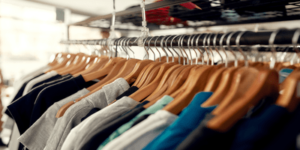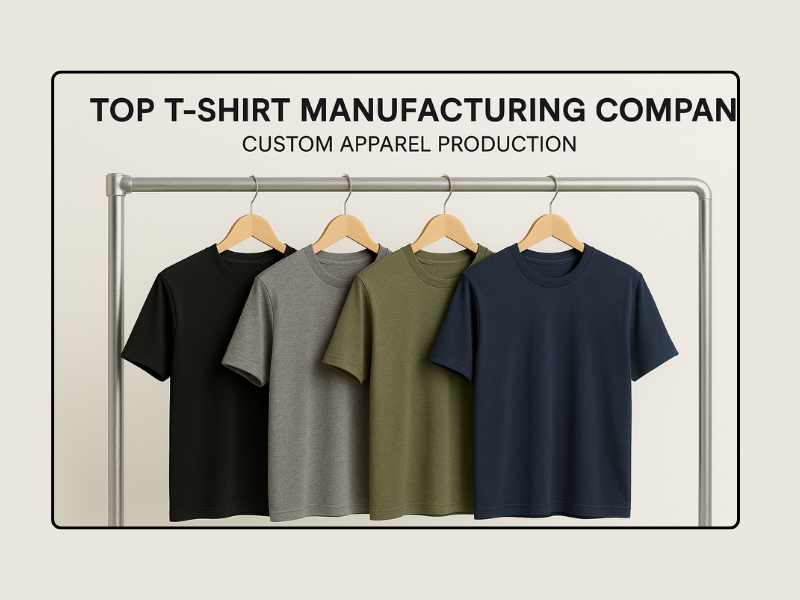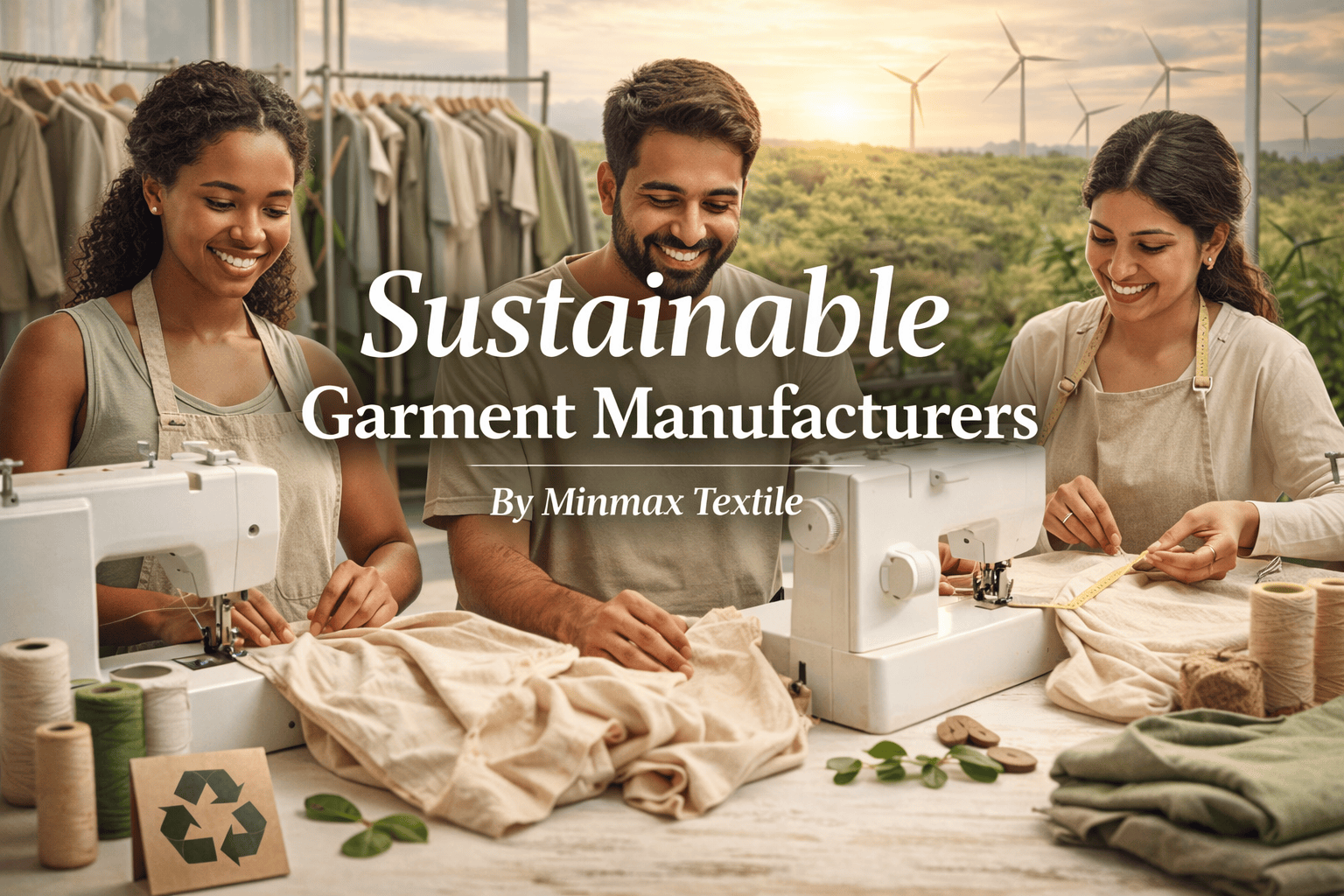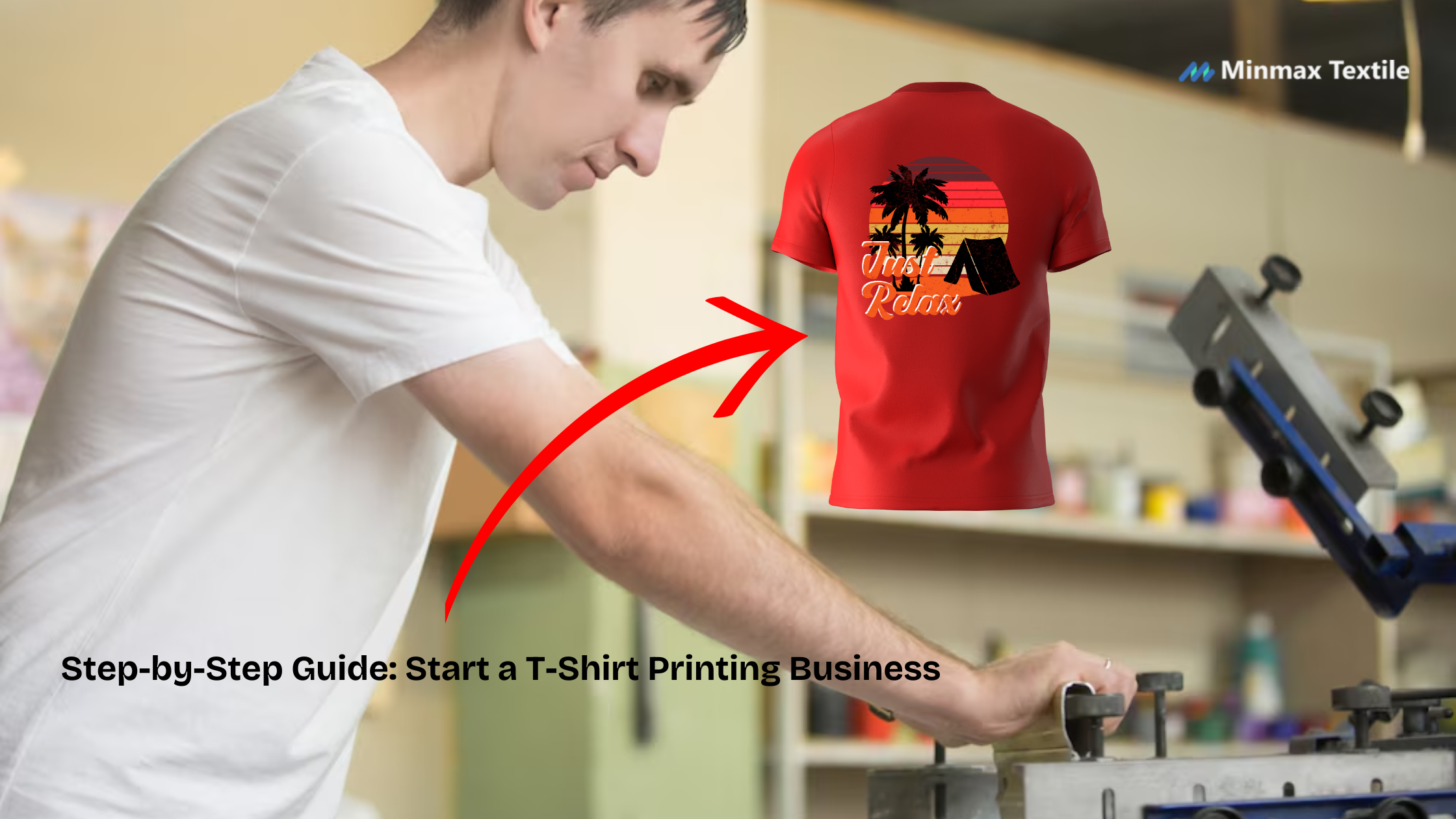In the competitive landscape of apparel, choosing the right t shirt manufacturing company is not just a business decision but a strategic investment in quality and customer satisfaction. Whether you’re launching a new clothing line or expanding an existing brand, the manufacturing process sets the foundation for your product’s success.
Selecting a t shirt manufacturing company with extensive experience and expertise ensures that your t-shirts meet high standards of craftsmanship and durability. Their specialization in the type of t-shirts you envision???whether basic essentials, trendy fashion pieces, or performance wear???can significantly enhance product appeal and market competitiveness.
Besides, evaluating manufacturing capabilities such as production capacity, technological integration, and sustainability practices is essential. These factors not only impact production efficiency but also align with growing consumer preferences for eco-friendly products.
By forging a partnership based on transparency, reliability, and shared values, you can navigate the complexities of t-shirt manufacturing with confidence. This guide explores key considerations to help you make an informed decision and establish a fruitful collaboration with the right t shirt manufacturers that drives your brand’s growth and customer loyalty.
Key Factors to Consider When Choosing a T-Shirt Manufacturing Company
When choosing a t-shirt manufacturing company, several key factors can significantly impact your decision and the success of your apparel business. Here???s an in-depth exploration of what to consider:
1.Experience and Expertise
The experience and expertise of a t-shirt manufacturing company are crucial indicators of their ability to meet your production needs and deliver quality products consistently. Look for:
- Industry Experience: Seek manufacturers with a proven track record in t-shirt production. Experience indicates familiarity with industry standards, production challenges, and efficient processes.
- Specialization: Consider whether the manufacturer specializes in the type of t-shirts you need (e.g., basic tees, fashion-forward designs, performance wear). Specialization often leads to better quality and efficiency in production.
- Client Portfolio: Review their client portfolio to assess if they have worked with brands similar to yours. This can provide insights into their capability to handle your specific requirements and meet your brand???s standards.
2.Manufacturing Capabilities
Understanding a manufacturer???s capabilities is essential to ensure they can fulfill your production requirements now and in the future. Key aspects to evaluate include:
- Production Capacity: Determine if the manufacturer can handle your desired order volume. Some companies specialize in small runs, while others focus on large-scale production.
- Technological Advancements: Assess the technologies and machinery used in their production process. Modern equipment often results in higher efficiency, quality consistency, and faster turnaround times.
- Scalability: Consider if the manufacturer can scale production to accommodate your business growth. Flexibility in scaling ensures they can meet increasing demands without compromising quality.
3.Quality Control Processes
Quality control is paramount in t-shirt manufacturing to ensure products meet customer expectations and brand standards. Look for:
- Quality Assurance Protocols: Inquire about their quality control measures throughout the production process. This includes inspections at various stages???raw materials, production, and finished goods.
- Testing Standards: Ask about their testing procedures for fabric durability, colorfastness, stitching integrity, and fit consistency. Rigorous testing ensures that t-shirts meet industry standards and maintain quality across batches.
- Certifications: Check if the manufacturer holds certifications for quality management systems (e.g., ISO 9001) or specific product standards (e.g., OEKO-TEX?? Standard 100 for textile sustainability and safety).
4.Sustainability Practices
Increasingly, consumers and brands prioritize sustainability in manufacturing processes. Choosing a manufacturer with robust sustainability practices can align with your brand values and attract eco-conscious customers. Consider:
- Environmental Initiatives: Look for manufacturers that employ eco-friendly practices such as using organic or recycled materials, minimizing water and energy consumption, and reducing carbon footprint.
- Certifications: Verify if the manufacturer holds certifications or adheres to standards that promote sustainability, such as Global Organic Textile Standard (GOTS), Bluesign??, or Fair Trade certifications.
- Ethical Labor Practices: Ensure the manufacturer follows ethical labor practices and provides a safe working environment for their employees. Transparency in supply chain practices is increasingly important to consumers.
5.Reputation and References
Researching a manufacturer???s reputation and seeking references from past or current clients can provide valuable insights into their reliability, communication, and overall satisfaction. Consider:
- Online Reviews and Testimonials: Check online platforms, industry forums, and social media for reviews from other brands who have partnered with the manufacturer.
- References: Request references directly from the manufacturer and contact these clients to discuss their experience. Ask about communication, reliability, product quality, and any challenges encountered.
6.Cost and Pricing Structure
While cost shouldn???t be the sole determining factor, it???s essential to understand the manufacturer???s pricing structure and how it aligns with your budget and business goals. Factors to consider include:
- Transparent Pricing: Choose a manufacturer that provides clear and transparent pricing, including costs for materials, labor, and additional services (e.g., shipping, customizations).
- Value vs. Cost: Assess the overall value offered by the manufacturer in terms of quality, service, and reliability. Sometimes paying slightly more for higher quality or better service can result in long-term savings and customer satisfaction.
7.Communication and Customer Support
Effective communication and responsive customer support are critical for a successful partnership with a manufacturing company. Evaluate:
- Communication Channels: Ensure the manufacturer communicates clearly and promptly via preferred channels (e.g., email, phone, video calls).
- Customer Support: Assess their responsiveness to inquiries, ability to address concerns or issues promptly, and willingness to collaborate on custom projects or adjustments.

Top T-Shirt Manufacturing Companies in 2024
As of 2024, the landscape of t-shirt manufacturing is diverse and dynamic, with several prominent companies leading the industry. Here???s a list of top 10 t-shirt manufacturing companies, including Minmaxst Textile, known for their reputation, capabilities, and contributions to the market:
1.Minmaxst Textile
-
- Overview: Minmaxst Textile is recognized for their expertise in textile manufacturing, including t-shirts.
- Key Offerings: They specialize in customizable t-shirt production, focusing on quality and client satisfaction.
2.HanesBrands
-
- Overview: HanesBrands is a global leader in basic apparel, including t-shirts, known for their wide distribution and affordability.
- Key Offerings: They offer a range of t-shirts under various brands like Hanes, Champion, and ComfortWash.
3.Gildan Activewear
-
- Overview: Gildan Activewear is renowned for manufacturing basic and fashion-forward t-shirts, catering to both retail and promotional markets.
- Key Offerings: Their t-shirts are known for quality fabrics and extensive color options.
4.Fruit of the Loom
-
- Overview: Fruit of the Loom is a well-established brand offering a variety of apparel, including t-shirts, known for their durability and value.
- Key Offerings: They provide t-shirts in cotton blends and performance fabrics, suitable for various purposes.
5.American Apparel (Los Angeles Apparel)
-
- Overview: Known for their made-in-USA approach and quality basics, American Apparel (now Los Angeles Apparel) offers stylish and durable t-shirts.
- Key Offerings: They emphasize ethical manufacturing practices and a wide range of color choices.
6.Bella+Canvas
-
- Overview: Bella+Canvas focuses on fashion-forward, eco-friendly t-shirts favored by retail and apparel brands.
- Key Offerings: They specialize in high-quality, sustainable fabrics and trendy cuts.
7.Next Level Apparel
-
- Overview: Next Level Apparel is known for its premium blend t-shirts and innovative fabrications.
- Key Offerings: They cater to the fashion industry with soft fabrics and modern silhouettes.
8.Under Armour
-
- Overview: Under Armour is renowned for its performance apparel, including t-shirts designed for athletes and active lifestyles.
- Key Offerings: Their t-shirts feature moisture-wicking fabrics and ergonomic designs.
9.Nike
-
- Overview: Nike offers a range of sports apparel, including t-shirts that combine performance with style.
- Key Offerings: Their t-shirts are favored by athletes for their innovative technologies and iconic branding.
10.Adidas
-
- Overview: Adidas provides sportswear and casual apparel, including t-shirts known for their quality and athletic appeal.
- Key Offerings: They offer t-shirts with advanced materials for comfort and performance.
These companies represent a mix of traditional apparel giants and newer players focusing on sustainability, performance, and fashion-forward designs. Choosing the right manufacturer depends on your specific needs, whether it???s affordability, sustainability, or specialized fabrications, ensuring they align with your brand values and product requirements.
Steps Involved in T-Shirt Manufacturing Process
The t-shirt manufacturing process involves several intricate steps to transform raw materials into finished garments ready for distribution. Here???s an in-depth look at each stage:
1.Design and Prototyping
The journey of manufacturing a t-shirt begins with the design phase:
- Conceptualization: Designers conceptualize the t-shirt’s style, fit, and features based on market trends, customer preferences, and brand identity.
- Technical Drawings: Detailed technical drawings are created, specifying dimensions, seams, stitching types, and embellishments.
- Prototyping: Prototypes are produced to test the design’s feasibility and functionality. This stage allows for adjustments to ensure the final product meets quality and aesthetic standards.
2.Fabric Sourcing and Preparation
Selecting the right fabric is crucial for t-shirt quality and performance:
- Material Selection: Manufacturers choose fabrics based on desired characteristics such as comfort, durability, breathability, and stretch.
- Sourcing: Fabrics are sourced from suppliers or produced in-house. Factors like cost, quality, and availability influence sourcing decisions.
- Pre-treatment: Fabrics undergo pre-treatment processes such as washing, bleaching, and dyeing to enhance color retention, softness, and shrinkage control.
3.Pattern Making and Cutting
Precision in pattern making and cutting ensures consistency across t-shirt batches:
- Pattern Making: Patterns are created based on technical drawings, accounting for size variations and seam allowances.
- Marker Making: Markers (layouts) are generated to optimize fabric usage, reducing waste during cutting.
- Fabric Cutting: Automated cutting machines or manual cutting techniques are used to cut fabric panels according to the pattern markers.
4.Printing and Embellishment (Optional)
Printing adds designs, logos, or graphics to t-shirts:
- Screen Printing: A popular method for bulk orders, where ink is transferred through a stencil onto the fabric.
- Digital Printing: Direct printing of designs onto t-shirts using specialized printers.
- Heat Transfer: Designs are printed onto transfer paper and then heat-pressed onto the fabric.
- Embroidery: Stitching designs onto t-shirts using computerized embroidery machines, adding texture and durability.
5.Sewing and Assembly
Assembly of t-shirts involves precise stitching and construction:
- Sewing Process: Skilled operators use sewing machines to stitch fabric panels together, following specified seam allowances and stitching techniques.
- Trimming and Finishing: Excess threads are trimmed, and seams are inspected for quality. Labels, tags, and any additional embellishments are attached.
6.Quality Control and Inspection
Quality control ensures t-shirts meet defined standards:
- In-process Inspection: Inspections are conducted at various stages (cutting, sewing, and finishing) to identify defects or inconsistencies.
- Final Inspection: Completed t-shirts undergo rigorous checks for fit, stitching integrity, color accuracy, and overall quality.
- Testing: Some manufacturers conduct performance tests (e.g., wash testing) to assess durability and colorfastness.
7.Packing and Shipping
Once quality checks are complete, t-shirts are prepared for distribution:
- Packaging: T-shirts are folded, polybagged, or boxed according to customer specifications.
- Labeling and Tagging: Size labels, care instructions, and brand tags are attached.
- Shipping: Finished goods are packed into cartons or pallets for shipping to distribution centers or directly to retailers.
8.Distribution and Retailing
T-shirts reach consumers through various distribution channels:
- Wholesale Distribution: Bulk shipments to retailers or distributors.
- Direct-to-Consumer: Selling through online platforms or company-owned stores.
- Retail Placement: T-shirts are displayed and sold in retail stores, often alongside other apparel and accessories.
Final Words
Choosing the right t-shirt manufacturing partner is pivotal for ensuring product quality, meeting deadlines, and aligning with your brand’s values. Prioritize manufacturers with extensive industry experience and a proven track record in producing t-shirts that meet your specifications. Evaluate their manufacturing capabilities, including production capacity, technological advancements, and scalability. Look for transparent communication and responsive customer support to foster a collaborative relationship. Sustainability practices and ethical standards should also be considered to resonate with environmentally conscious consumers. Ultimately, a well-informed decision based on these factors will not only streamline production but also uphold your brand’s reputation for delivering superior t-shirts that meet market demands.
FAQs
1.How important is the experience of a t-shirt manufacturing company?
Experience is crucial as it reflects a manufacturer’s proficiency in handling various production challenges, adhering to quality standards, and meeting client expectations. An experienced company is likely to have refined processes, better industry insights, and a proven track record of delivering consistent results.
2.What factors should I consider when evaluating manufacturing capabilities?
Key factors include production capacity (ability to meet your order volumes), technological capabilities (use of modern machinery for efficiency), and scalability (ability to grow alongside your business). Understanding these capabilities ensures that the manufacturer can effectively fulfill your specific production needs.
3.Why are sustainability practices important in t-shirt manufacturing?
Sustainability is increasingly important to consumers and aligns with global environmental goals. Choosing a manufacturer with eco-friendly practices, such as using organic materials, minimizing water usage, and reducing carbon footprint, not only meets consumer preferences but also enhances your brand’s reputation as socially responsible.
4.How can I ensure quality control in t-shirt manufacturing?
Quality control involves rigorous inspections and tests throughout the manufacturing process, from fabric sourcing to final product assembly. Manufacturers should have robust quality assurance protocols in place to ensure t-shirts meet specified standards for durability, fit, colorfastness, and overall craftsmanship.
5.What role does communication play in selecting a manufacturing partner?
Effective communication is essential for maintaining transparency, resolving issues promptly. Choose a manufacturer who communicates clearly, responds in a timely manner, and demonstrates a willingness to collaborate closely with your team.
6.How can I assess a manufacturer’s ethical standards?
Ethical standards encompass fair labor practices, safe working conditions, and compliance with industry regulations. Look for manufacturers who provide transparency about their supply chain practices, hold certifications for ethical manufacturing, and prioritize worker welfare.
7.What should I consider besides cost when choosing a manufacturing partner?
While cost is important, it should not be the sole determining factor. Consider factors like quality, reliability, sustainability practices, and the manufacturer’s ability to meet deadlines and support your brand’s growth. A balance of cost-effectiveness and value-added services ensures a successful and sustainable partnership.




